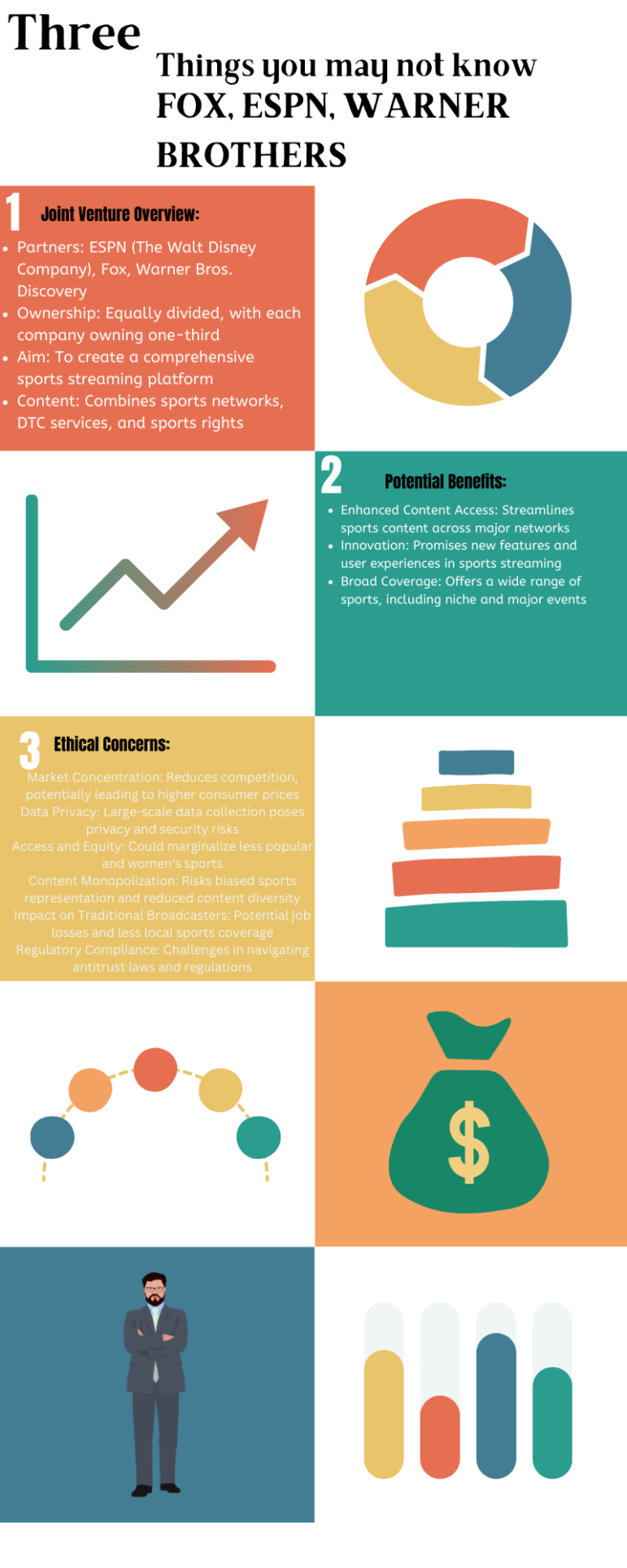ESPN, Warner Brothers and Fox recently announced plans to consolidate sports streaming into a single platform, set to officially launch in fall of 2024. Plans for this “Joint Venture” are currently vague and in preliminary planning stages, but have major implications for the future of college sports broadcasting, including sports at Michigan State University.
The potential for expanded MSU sports coverage may not only affect college sports fans but also sports broadcast students, one of MSU’s largest undergraduate programs.

College streaming has expanded significantly over the last decade, with platforms like the Big 10 Network and Peacock, both subscription-based streaming platforms. Implications about what the joint venture means for fair competition with streaming sports programming concern sports fans and broadcast students alike.
Cameron Levi, an East Lansing local, said, “I don’t get how it would actually work. Like when has something like this happened before?”
However, some see the joint venture as both an economic and exposure opportunity.
“I think it’s great in terms of taking advantage of the limited resources each platform would have on its own,” said Shaarav Shah, a junior at MSU and creator of the student Finance Club.
Andy Cohen, East Lansing local and member of his local hockey team at first was concerned by the complications the joint venture might pose as a sports watcher, but as an athlete, he could see some benefits.
“I mean I’m still kind of optimistic about it, maybe it’ll open up some opportunities for college broadcasting,” Cohen said.
As far as exposure goes, the deal could be massive, especially for universities with a strong athletic department like MSU.
“We would definitely benefit from it, think about it, with global exposure anything can happen,” said Shah.
Inevitably a deal of such caliber would raise questions of uncertainty in regard to the logistics of it taking place.
“Look at the three companies collaborating though, this can’t be good.” said Levi.
It seems there is as much intrigue as there is confusion among the public when it comes to this matter.
“Time will tell. If this actually happens, I can see it being the biggest deal in this industry,” said Levi.
The financial implications of this deal are as significant as the sporting ones, with many having cause for concern while others are thinking about the opportunity that could possibly stem from this.
“In these current times, it is bound to happen as multiple companies are combining to form conglomerates within different media spaces,” said Arjun Kashyap, a junior, majoring in finance at MSU.
The organizations were quite vague about the possibility of this idea coming to fruition, the timeline is relatively unknown.
“I love sports. I don’t love change, especially when it’s change that’s brought forward by the biggest in the business you know,” said Cohen.
While next steps in the joint venture’s timeline remain unclear, sports fans should find out how the sports broadcasting landscape will change before the year is done.
